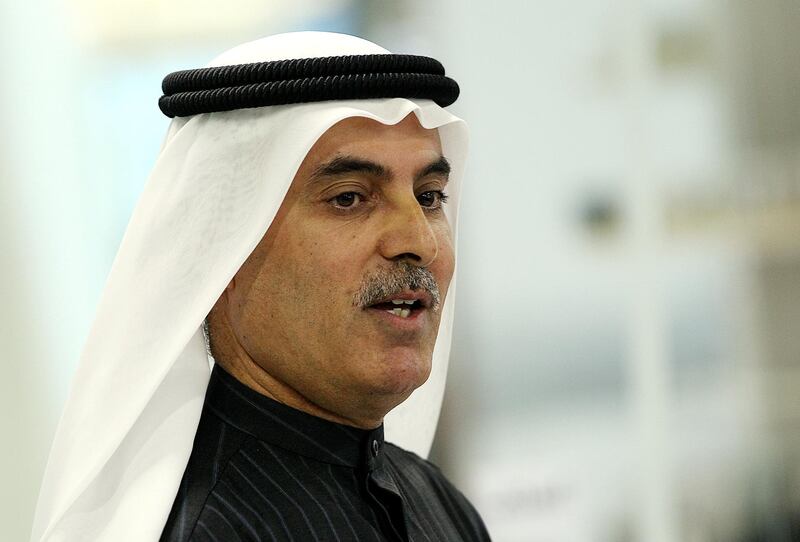The head of the UAE Banks Federation expects higher loan growth and profitability for banks in 2018 as the economy turns the corner and lenders reduce the amount of non-performing loans that piled up during the SME debt crisis in the wake of the 2014 oil crash.
"Despite everything that's happening around us, we are seeing growth," Abdulaziz Al Ghurair told reporters in Dubai on Monday. "It will be better this year from last [year] despite the challenges. Net profit will also grow this year, hopefully better than last year."
“The economy is going to grow 3 to 4 per cent and with the oil prices stabilising that’s good news because we will benefit."
The banker, who is also the chief executive of Dubai-based Mashreq Bank, forecast loan growth of 5 per cent to 6 per cent on aggregate for banks in the UAE this year compared to 4 per cent last year. At the same time, the profitability of banks is likely to exceed the 8 per cent growth seen in 2017 compared with 2016.
__________________
Read More:
[ S&P Global Ratings forecasts flat loan growth for GCC banks in 2018 and 2019 ]
[ Commercial Bank International expects 5 per cent loan growth in 2018 as oil and debt demand pick up ]
__________________
It's not just Mr Al Ghurair who is upbeat about the prospects of UAE banks this year. Other chief executives and analysts who track the fortunes of lenders are also optimistic. Mark Robinson, the chief executive of Commercial Bank International, recently told The National that he is expecting 5 per cent loan growth for the bank. Analysts including Saeeda Jaffar at consultants Alvarez & Marsal see non-performing loans declining and rising interest rates giving a boost to net interest margins.
Higher interest rates on the dirham, which is pegged to the US dollar and follows the monetary policy of the Federal Reserve, will boost the profitability of banks overall even though the UAE is at a different point in the economic cycle. While the US economy is buoyant, the UAE is still recovering from the fallout from the oil crash. Banks in particular are still hurting from big holes in balance sheets caused by SMEs going under in the years following the oil slump.
Still, the senior banker said that banks are becoming more cautious about lending to SMEs and are now asking for collateral from owners, a move that will allow them to lend to them at better rates. At the same time, as the bankruptcy law kicks in, more SME owners that fled the country are coming back to renegotiate bad debts they left behind. That’s especially the case as banks become more willing to renegotiate with insolvent businessmen, he said.
"The SME honeymoon is over," Mr Al Ghurair said. "In the last three years, banks supported SME lending, thinking that this will be an engine to drive the economy and was given without many conditions. Today, with the experience we have on the SME lending...we really will know who is worth lending to, and who is not."
The executive said he was still waiting for a review from the central bank on whether or not banks can pass on VAT to customers for fee and commission services or whether they have to absorb it which most are currently doing. VAT is not applied to interest from loans.
Mr Al Ghurair also said that the central bank would start next month a new way of calculating rates of the Emirates Interbank Offered Rates that would bring about more transparency and accuracy, especially as external auditors, which he didn't name, will be monitoring the rates.





